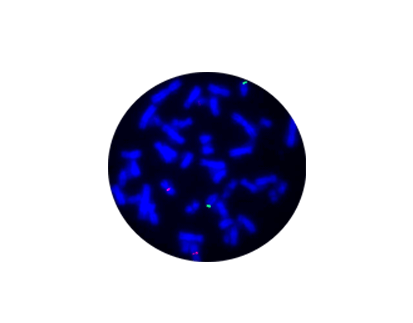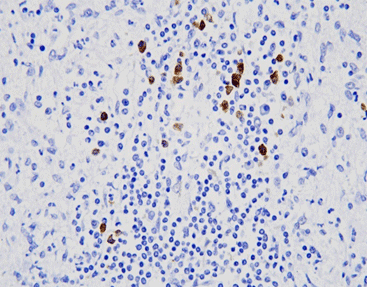Can Single-Molecule Diagnostics Revolutionize Disease Detection? The Future Is Here

By admin
The Dawn of Precision Diagnostics
Shifting Paradigms in Healthcare
The field of illness detection is experiencing a major shift. Historically, diagnostics depended largely on visible symptoms and broad pathological tests. These methods were helpful but often gave a wide view. They sometimes missed fine details needed for exact personalized care. Now we enter a new period. Understanding sickness at its most basic level – the molecular scale – has become vital for clinical practice. This change is reshaping how we spot, categorize, and manage many conditions. These range from infections to complex cancers.
The Promise of Molecular Insights
Molecular diagnostics explores the detailed world of genes, proteins, and other tiny particles. It uncovers unique biological signs of diseases. By finding exact genetic changes, RNA patterns, or protein profiles, doctors gain an exceptional understanding of disease development. They can predict treatment responses. They might even find risks long before symptoms appear. This ability improves diagnostic accuracy. It enables more focused treatments. Ultimately, it betters patients’ lives.
Understanding Molecular Diagnostics
Beyond Traditional Methods
Conventional diagnostic approaches often involve examining cells and tissues under microscopes after staining. These techniques remain important. Yet they may not show hidden molecular shifts driving disease. Molecular diagnostics provides deeper investigation. It offers a view into cellular genetic and biochemical machinery. This means going beyond seeing sick cells. Now we understand why they are sick and how they act at the molecular scale.
Core Technologies Revolutionizing Detection
Central to molecular diagnostics are advanced technologies for detecting DNA, RNA, and proteins. These include methods like Fluorescence In Situ Hybridization (FISH), Chromogenic In Situ Hybridization (CISH), and improved Immunohistochemistry (IHC). Each offers distinct benefits for finding molecular indicators. These tools are quickly becoming essential in modern pathology laboratories globally.
Key Molecular Technologies and Their Impact
FISH and CISH: Visualizing Genetic Aberrations
Fluorescence In Situ Hybridization (FISH) and Chromogenic In Situ Hybridization (CISH) are strong techniques. They detect and locate specific DNA or RNA sequences inside cells and tissues. These approaches let pathologists see chromosome irregularities, gene copies, or deletions. Such findings are vital for diagnosing certain cancers and genetic conditions. Celnovte provides a full selection of FISH and CISH products. These meet high standards for sensitivity and specificity. They deliver the necessary tools for genetic study. Our collection holds over 100 FISH probes, released in 2016.
SUPER-ISH™: Unlocking RNA Secrets at Single-Cell Resolution
Beyond DNA, finding RNA targets gives key data about gene activity and cellular function. Celnovte’s groundbreaking SUPER-ISH™ RNA In-Situ Hybridization Technology is a major advance here. It enables RNA target detection at single-molecule scales with single-cell resolution. This unmatched specificity allows deeply detailed views of cellular activities. It becomes priceless for advanced research and diagnostic uses. These products launched notably in 2020.
The Power of Immunohistochemistry (IHC) in Precision Medicine
Immunohistochemistry (IHC) uses antibodies to find specific antigens (proteins) in tissue specimens. It provides essential knowledge about cell types, tissue sources, and disease marker presence. IHC is foundational for cancer identification, outlook prediction, and treatment response forecasting.
Primary Antibodies: The Foundation of Specificity
IHC accuracy relies heavily on primary antibody quality. Celnovte’s dedication to excellence shows in our large catalog of Immunohistochemistry Primary Antibodies. We offer more than 130 self-cloned MMab and RMab primary antibodies. Among these, 47 earned optimal or good NordiQC ratings. This ensures dependability and exactness. Additionally, we supply over 500 ready-to-use antibodies. This simplifies laboratory processes.
Advanced Detection Systems: Unrivaled Sensitivity and Speed
To support our top-grade antibodies, Celnovte created sophisticated detection systems. Our MicroStacker™ IHC Detection System is celebrated for its extraordinary sensitivity and specificity. It delivers clear, precise results. For quick diagnostics, especially when instant decisions are needed, our PolyStacker™ Technology greatly shortens frozen section IHC experiment times. It takes only 10 minutes. This gives a key edge in fast clinical settings. We also provide DualStacker™ Multiplex solutions and PolyStacker™ Frozen IHC solutions. These debuted in 2019 and 2020, respectively. They display our ongoing innovation in this area.
Multiplexing for Comprehensive Analysis
Beyond single-marker detection, Celnovte supplies Multiplex IHC and Multiplex IF solutions. These permit simultaneous discovery of multiple biomarkers on one tissue section. They give a fuller understanding of complex disease processes. They also preserve valuable tissue samples. Our p16/Ki-67 Green / Blue color system, introduced in 2023, illustrates such sophisticated multiplex abilities. It assists in particular diagnostic situations.
Enabling Technologies: The Role of Automated Instrumentation
Automated Stainers: Enhancing Efficiency and Reproducibility
Rising demand for molecular diagnostics requires highly efficient, reliable lab tools. Celnovte gives a complete set of automated instruments. These are made to improve workflow and ensure uniform results. Our Automated IHC slide stainers include models like CNT 300/330/360/320. They have been broadly adopted. Over 800 units have been successfully placed worldwide since 2018. These systems automate intricate staining procedures. They lessen human errors and boost output.
Digital Pathology: The Future of Diagnostic Workflows
Supporting our staining instruments, Celnovte’s Digital Pathology Digital Scanners, like CNT 160 (debuted 2020), are changing how pathology slides are examined and shared. Digital scanners turn physical slides into high-definition digital images. This enables remote access, simpler consultation, and artificial intelligence applications for better analysis. This technology substantially increases diagnostic efficiency. It also improves cooperation among pathology experts.
Celnovte’s Commitment to Advancing Diagnostics
Our Expertise and Global Reach
Founded in 2010, Celnovte Biotech focuses on research, development, production, and distribution of sophisticated pathological diagnostic reagents and instruments. With main offices in Rockville, MD, USA, and branches in Shenzhen, Suzhou, and Zhengzhou, China, we run modern facilities. These comply with NMPA & GMP standards. They hold ISO13485, ISO9001, FDA, and CE IVDR certifications. Our wide pathological network covers over 2300 leading hospitals in China. It extends to more than 40 nations worldwide.
Tailored Solutions for Diverse Needs
At Celnovte, our purpose is to improve exactness in cancer diagnostics and enhance patients’ lives through novel products and services. We take pride in delivering premium diagnostic services. We emphasize product quality, exceptional customer satisfaction, and scientific progress. We know each lab and research center has particular requirements. Therefore, we pledge to supply not just a wide array of top IHC, CISH, and FISH products. We also give custom solutions for special research and clinical demands. Our products meet the highest sensitivity and specificity standards. This reflects our devotion to constantly improving for our global customers and patients.
The Future of Illness Diagnosis
Precision, Personalization, and Proactive Care
Continued progress in molecular diagnostics points to a future where detection is sharper, treatments are more individualized, and healthcare becomes more preventive. By grasping molecular disease foundations, clinicians can choose more effective therapies with fewer side effects. This moves beyond universal approaches. This fundamental shift will lead to better patient results and a more productive healthcare system.
Continuous Innovation
Innovation stays central to this advancement. Firms like Celnovte keep investing in R&D to create next-generation diagnostic tools. They expand possibilities in disease identification and control.
A New Era of Hope
Molecular diagnostics is not merely an improvement; it transforms how we address illness. By offering unmatched detail and exactness, these technologies are reshaping diagnostic workflows. They enable personalized medicine. They bring fresh hope to countless patients globally. As a leader in pathological diagnostic reagents and instruments, Celnovte proudly leads this change. We strive to enhance diagnostic precision. We equip healthcare professionals with the necessary tools for vital decisions. The diagnostic future has arrived, and it is molecular.
FAQ
Q: What types of molecular diagnostic products does Celnovte offer?
A: Celnovte offers a broad selection of molecular diagnostic items, including CISH, SUPER-ISH™ for single-molecule RNA finding, FISH probes, and related supplies.
Q: What automated instruments does Celnovte provide for pathology labs?
A3: Celnovte supplies a full range of automated instruments, including IHC stainers, cytology stainers, H&E stainers, special stainers , ISH processors, nucleic acid extractors, and digital slide scanners.
Q: Are Celnovte’s products certified?
A: Yes, Celnovte’s facilities in the USA and China follow NMPA & GMP rules. They hold ISO13485, ISO9001, FDA, and CE IVDR certifications.
RELATED PRODUCTS









